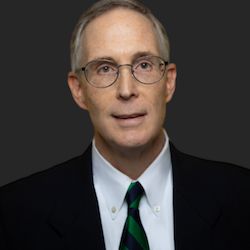How Journalism Provided a Solid Career Foundation
By Tim O'Brien, APR
August 2019
It’s not that difficult to find independent PR practitioners who’ve started their careers in journalism, and many of them take a certain pride in having launched their careers in a newsroom.
Why? Perhaps it’s the ability to see things from the reporter’s vantage point because you’ve been there. Or maybe it’s that having worked under deadline in the pressure-cooker environment of newsgathering, they’ve honed skills that have served them well in public relations.
Fran Stephenson, APR, of Step In Communications in San Antonio, says she started freelancing as a writer soon after graduating from college. For a time, she lived in Australia, where she became a stringer for The Canberra Times, a daily newspaper.
“I had to be quick in turning around stories. I also had to learn to write short. My word counts were usually very odd numbers like 260, 320 or 480 words,” she said.
As an independent PR practitioner today, Stephenson says that she continues to tap some of those skills she honed as a journalist.
“Learning to execute quickly and efficiently is as important as an indie as it was as a writer,” she added. Plus, she said that being able to write well, to the word count and without writer’s block is very important.
A background in writing
John Frith, APR, of The Write Stuff Communications in Sacramento, Calif., was a newspaper reporter with a daily in Simi Valley.
“I covered City Hall and business, and eventually became editor of the Sunday edition,” he said. “I did a little bit of everything.”
Later, after feeling that he had “hit a ceiling” with his newspaper career, John took a job as press secretary to a local congressman and moved to Washington, D.C.
“As someone who was on the receiving end of pitches and press releases, I was convinced that every PR pro should at least spend a few months in journalism. Of course, given the current state of the news business, that’s easier said than done,” he said.
“Learning to write on a diet of six deadline stories per day is invaluable, and I try hard not to waste reporters’ time by pitching stuff I wouldn’t find newsworthy.”
As an indie, John points to the need to meet deadlines and juggle numerous projects as two areas where his journalism experience has made a difference.
From broadcasting to independent success
Stu Opperman of Impact Players in Hollywood, Fla., said that his first media job was reporting news and sports as a student on radio and TV stations at the University of Florida. His first job after graduation was at KIQO-FM in Atascadero, Calif., where he was a DJ on the overnight shift and a newscaster on the morning show.
While he liked his time in broadcasting and found early success, he didn’t see it as a “career to grow old in and have a stable lifestyle,” so he decided to transition into public relations.
“When I realized my sports-related options were limited in South Florida and I wasn’t willing to move to another market, it was time to find another career,” he said.
Once in the PR profession, Opperman found that some of his broadcasting skills were transferable.
“I entered [public relations] with an overall understanding of how the media works and what they need to do their jobs,” he said. “The ability to synthesize information, understand what’s newsworthy, and tell concise but compelling stories, were three advantages.”
As an indie, Opperman said that having been in the news business has enabled him to, “master the ability to work independently and deliver the appropriate product on deadline.”



